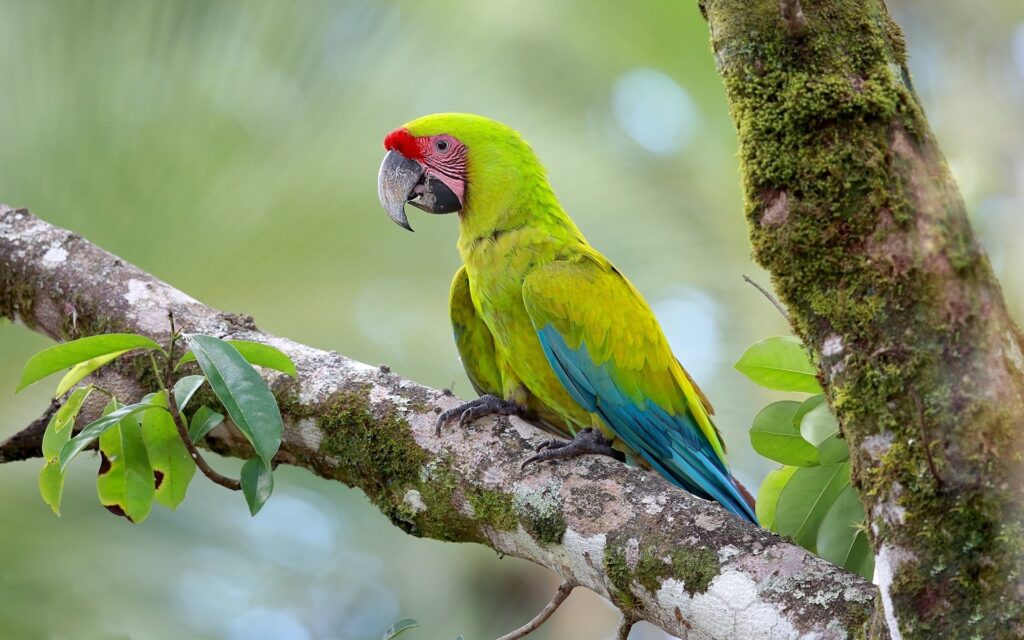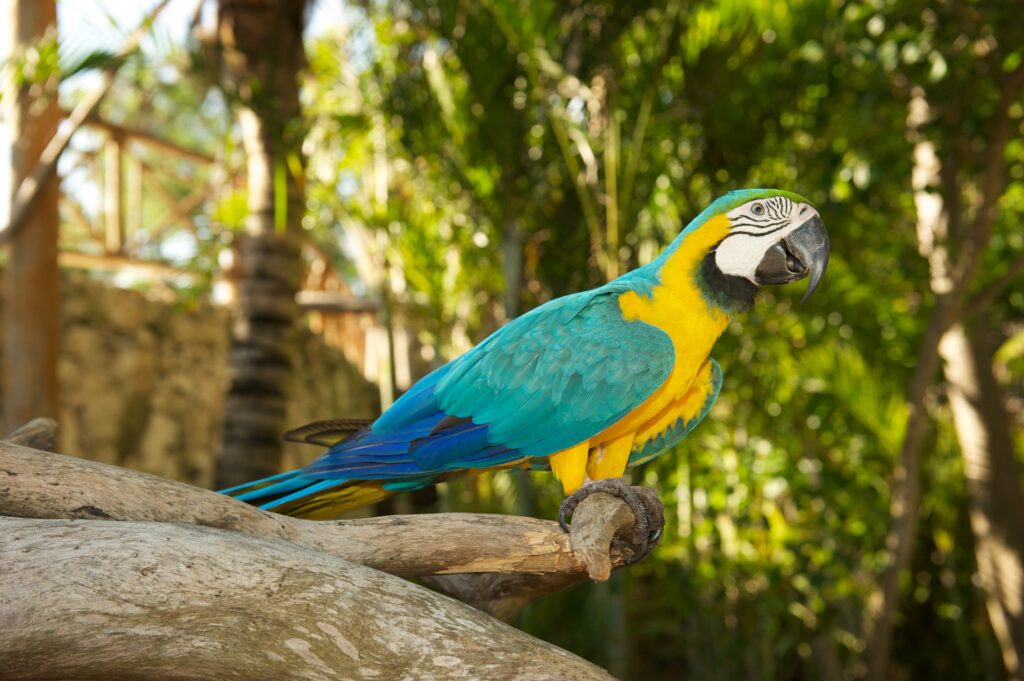Table of Contents
ToggleIntroduction
Parrots, with their vibrant plumage, playful personalities, and remarkable intelligence, have captivated the hearts of bird enthusiasts for centuries. Among the diverse species of these avian wonders, exotic parrots stand out for their unique colors, striking patterns, and fascinating behaviors. Parrots Exotic: We will delve into the enchanting world of exotic parrots, exploring their origins, characteristics, care requirements, and the joy they bring to those lucky enough to share their lives.
The Allure Of Exotic Parrots
Diversity of Species: The term “exotic parrot” refers to a wide variety of species. Each of these has its own set of particular characteristics. In the world of exotic parrots, there is a rich tapestry of colors and behaviors, ranging from the majestic Hyacinth Macaw. With its deep blue plumage to the vibrant hues of the Eclectus Parrot and the quirky personalities of the Kakapo.
Unique Plumage and Colors: One of the defining features of exotic parrots is their breathtaking plumage. The brilliant reds, blues, greens, and yellows create a visual spectacle that never fails to mesmerize. Understanding the natural purpose and evolution of these vibrant colors adds another layer to the appreciation of these remarkable birds.
Origins And Habitats
Native Habitats: Exotic parrots are found in various regions around the world, from the rainforests of South America to the diverse landscapes of Australia. Exploring the native habitats of these birds provides valuable insights into their behavior, diet, and social structures.
Conservation Efforts: Many exotic parrot species face threats such as habitat loss, illegal pet trade, and climate change. Conservation efforts play a crucial role in protecting these birds and preserving their natural environments. Highlighting successful conservation stories can inspire individuals to contribute to the well-being of these magnificent creatures.
Understanding Exotic Parrot Behavior
Social Dynamics: Exotic parrots are highly social birds that thrive on companionship. Understanding their natural social structures, flock dynamics, and communication methods. It is essential to provide them with a fulfilling and enriching environment in captivity.
Intelligence and Problem-Solving Abilities: Exotic parrots are renowned for their exceptional intelligence. Discussing their problem-solving skills and ability to mimic human speech. An aptitude for learning tricks adds another layer to the fascination surrounding these birds.
Choosing The Right Exotic Parrot

Research and Considerations: Before bringing an exotic parrot into your home, thorough research is essential. Consider factors such as size, lifespan, dietary requirements, and the level of social interaction each species requires. Matching your lifestyle and preferences with the characteristics of a particular parrot species is crucial for a successful and fulfilling companionship.
Adopting or Rescuing: Adopting or rescuing an exotic parrot can be a rewarding experience. Exploring the benefits of adopting from reputable rescue organizations. And the responsibilities associated with providing a forever home to a bird in need encourage ethical choices within the pet community.
Creating A Parrot-Friendly Environment
Cage Setup and Enrichment: Designing an appropriate cage setup with ample space, perches, toys, and mentally stimulating activities is vital for the well-being of exotic parrots. Discussing the importance of environmental enrichment and providing tips for creating a stimulating environment fosters a healthy and happy life for these birds.
Nutrition and Diet: Exotic parrots require a balanced and nutritious diet to thrive. Detailing the dietary needs of different species, including fresh fruits, vegetables, and a variety of seeds, helps owners make informed choices to ensure the optimal health of their feathered friends.
Common Health Concerns And Veterinary Care
Regular Health Checkups: Regular veterinary checkups are crucial for detecting and preventing potential health issues in exotic parrots. Discussing common health concerns, such as feather plucking, respiratory problems, and beak disorders, empowers owners to be proactive in maintaining their pets’ well-being.
Importance of Mental Stimulation: Mental stimulation is as important as physical exercise for exotic parrots. Addressing the significance of providing puzzles, interactive toys, and opportunities for problem-solving engages owners in promoting the mental health of their feathered companions.
Building A Bond With Your Exotic Parrot
Positive Reinforcement and Training: Building a strong bond with an exotic parrot involves positive reinforcement and consistent training. Exploring positive training methods, establishing routines, and understanding the individual preferences of each bird contribute to a harmonious relationship between owner and pet.
Communication and Body Language: Exotic parrots communicate through a combination of vocalizations, body language, and facial expressions. Decoding their signals, respecting their boundaries, and fostering open communication deepens the understanding and connection between parrots and their human companions.
Is It Safe To Have African Grey Parrots As Pets?
Notable for its vocal abilities, this species includes the Timneh grey. Just like any other parrot, they might develop separation anxiety if kept in a small, solitary cage for too long. If a new caretaker is well-informed and attentive to the parrot’s body language, they can be a good choice for a first parrot. Greys require a minimum of three hours of human engagement per day, much like bigger birds. Three to four hours of outside cage time every day should be adequate for them.
Having an aviary as big as your space allows is a wise financial decision. Parrots are able to participate in their native habitat by eating branches, playing in the rain, and soaking up vitamin D from the sun in this way.
A Guide to Grey Parrots as Pets and Aviary Birds, written by Rosemary Low, is an excellent resource for anybody considering keeping one as a pet. In addition to her scientific works, Irene Pepperberg has published a compelling biography called Alex and Me (2008). Her work with grey Alex transformed our perception of greys’ talking abilities and intelligence. Regrettably, he did not live to the full potential of his kind, passing away at the age of 30.
Conclusion
Exotic parrots are not just pets; they are captivating companions that bring color, joy, and intelligence. Into the lives of those fortunate enough to share their homes. By understanding their origins, behaviors, and specific care requirements. Enthusiasts can create environments that promote the physical and mental well-being of these extraordinary birds. Whether you are considering bringing an exotic parrot into your life or are already a proud owner. This comprehensive guide aims to enhance your appreciation for these enchanting creatures and contribute to their overall welfare in captivity.







